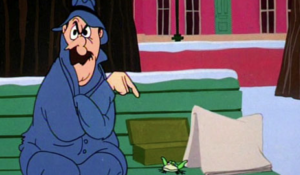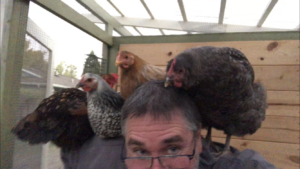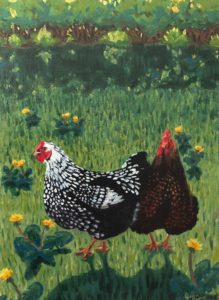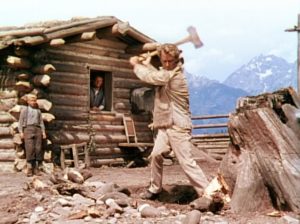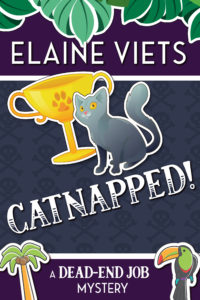 By PJ Parrish
By PJ Parrish
Sherman, set the Wayback Machine to 1940’s Switzerland for today’s submission. I won’t do my usual line edit here because I think the issues I have with this opening can be articulated better by analyzing each paragraph. I’m borrowing this technique from agent Jane Friedman, who sometimes analyzes openings. Check out her blog here. I don’t normally like to rewrite submissions, but maybe it’s helpful here. Thanks to our anonymous writer for letting us read, discuss, and learn.
The Stranger on Bahnhofstrasse
Jonas Shaw first feared someone tailed him in wartime Zurich on an overcast Sunday morning in late June, 1940. A church bell had sounded the hour of eleven, and he was admiring shoes in a store’s window on the fashionable Bahnhofstrasse when he noticed in the reflection a distinguished man the other side of the street gaze at him. With pedestrians strolling by and trams rumbling past, he couldn’t see the stranger clearly, but he was visible enough in a knee-length coat, gloves, and homburg hat, and gripping a cane to leave him feeling uneasy.
The stranger was a profiteer, wanting to lure into something illegal. A Nazi spy, hoping to enlist against the Swiss. Or an anti-Nazi, looking to coax into some conspiracy.
Or worst of all, an Englishman, and he had had enough of them. Jonas sensed with an ex-detective’s appreciation for trouble the man probably was up to no good. Ignore him.
He walked on, pausing shortly before the foreign exchange rates shown outside a bank and wished he hadn’t. The British pound had sunk further against the Swiss franc, and he worried how long he could hold out in that pricey city with his small inheritance. Again he caught in the window’s reflection the gentleman eye him the other side of Bahnhofstrasse. This wasn’t any accident, he determined. The stranger definitely observed him.
A tram, rattling down the thoroughfare towards the train station, blocked his view. When it had passed, he looked in the bank’s window. His pursuer had vanished. Alarm gripped Jonas. Where had that man gone? Yet his professional training prevailed. He’d draw out his nemesis, better judge the threat.
At the end of Bahnhofstrasse he wondered left onto Quai Brucke and onto a promontory overlooking the lake. He paused, as if to admire the view, but attuned to danger, considering his next move.
Footsteps on the gravel. Someone approached from his right. His pursuer, he saw when he turned, a man who doffed his hat in greeting, revealing a full head of white hair, and Jonas thought he had vaguely seen him somewhere before.
“Ah Switzerland, Mr. Shaw,” the gentleman noted. “Three things you can always say about it. You’ll always know the time. Always find a bank. Always enjoy its marvelous views.”
Jonas recognized him now and tensed…
______________________
Back to me in the present day. This is a fairly common opening we see in period spy/thriller novels or movies — a main character (we can’t tell yet if Jonas Shaw is our protagonist) being tailed by a mysterious stranger. My first impression was that it reads okay, meaning I can tell what’s happening and there is a hint of intrigue. But the writing itself creates some unnecessary confusion here and there. Let me break it down graph by graph to show you what I mean.
Jonas Shaw first feared someone tailed him in wartime Zurich on an overcast Sunday morning in late June, 1940. A church bell had sounded the hour of eleven, and he was admiring shoes in a store’s window on the fashionable Bahnhofstrasse when he noticed in the reflection a distinguished man the other side of the street gaze at him. With pedestrians strolling by and trams rumbling past, he couldn’t see the stranger clearly, but he was visible enough in a knee-length coat, gloves, and homburg hat, and gripping a cane to leave him feeling uneasy.
Does the opening line grab you? Me neither. Why? I suspect it’s because of the line’s construction: “Jonas Shaw first feared” implies there was a previous encounter, and that Shaw is remembering this. (flashback!) Adding the place and time makes it feel even further in the past. Also saying the church bell “had” tolled puts us in the past. We need to be firmly in the present with Jonas. I THINK the writer means to say Jonas first began to realize someone was following him at the moment when he caught sight of the man in the window. I could be wrong. But if this scene is, indeed, set in present-time action, then it needs to be clear. Something like:
Jonas Shaw was sure now that someone was following him.
The feeling first hit him when he left his hotel on Fustliststrasse. It stayed with him when he dipped into the Tabak to get his morning copy of Der Volks-Zeitung. And it was with him now as he turned onto Banhofstrasse, using the bustling crowd as a shield to glance over his shoulder.
No one….
Still, the feeling was there, that same feeling he used to get when he worked as a detective back in London.
He stopped, newspaper under his arm, and pretended to look at the shoes in the window of Bally’s.
But his eyes were fixed on the reflection in the window of the man across the street. Even through the bustle of trams and pedestrians, Jonas could see the man’s details — elegant black overcoat, gloves and a black cane. What he couldn’t see was the man’s face, hidden by the brim of the homburg hat.
The bells of nearby Fraumünster Church began to toll. Jonas counted each one, to eleven, trying to quell his unease.
What I tried to do here is put it firmly in the present. I used details of place (Bally, the famous old Swiss shoemaker, the Fraumunster Church) to hint at where we are rather than hit readers over the head with the clunky expository “wartime Zurich.” You can easily find a way to insert the exact year soon after.
but he was visible enough in a knee-length coat, gloves, and homburg hat, and gripping a cane to leave him feeling uneasy.
More confusion here because of displaced modifier. “gripping a cane to leave him feeling uneasy” could refer to the stranger when it apparently refers to Shaw. Moving on…
The stranger was a profiteer, wanting to lure into something illegal. A Nazi spy, hoping to enlist against the Swiss. Or an anti-Nazi, looking to coax into some conspiracy.
Or worst of all, an Englishman, and he had had enough of them.
I think we are in Shaw’s thoughts here ie intimate point of view. But again, the sentence construction creates confusion. Is Shaw speculating what the stranger COULD BE — is he a profiteer, or a Nazi-spy, or an “anti-Nazi”? (not sure what that is). “Or worst of all, an Englishman.” Also, not sure what this means, other than Shaw (whose name implies English or American) dislikes Brits. Also the verbs “lure” “hoping to enlist” and “coax” all need an object. You lure someone, you enlist someone, you coax someone to do something. Not sure how this can be reworked, other than something like:
Was the man a profiteer, looking to move melted gold coins through Zurich’s black market? Was he a Nazi spy, running reconnaissance for Operation Tannenbaum? Was he a member of the Spiritual Defense?
Or worse, was he a fellow Brit? Jonas had had enough them.
What I am asking the writer to do here is to be specific. And by doing so, he can make his setting and story feel more authentic. When you use generalized phrases like “anti-Nazi” or “profiteer” you miss opportunities to plant telling details, and you can’t write historical thrillers without such detail. Such as “Operation Tannenbaum” (a planned German invasion of Switzerland) or the name of the Swiss anti-war movement, Spiritual Defense. Shoot, you can’t write contemporary thrillers without it. Ditto on the description, which is why I used the Fraumunster Church and Bally (a Swiss company since the 1800s.) Moving on…
Jonas sensed with an ex-detective’s appreciation for trouble the man probably was up to no good. Ignore him.
Earlier, Jonas felt a sense of unease. His detective instincts (nice way to drop in what he used to do but we need to know soon what he does now) are telling him the guy’s up to no good, so why the next thought? Ignore him. It makes no sense.
He walked on, pausing shortly before the foreign exchange rates shown outside a bank and wished he hadn’t. The British pound had sunk further against the Swiss franc, and he worried how long he could hold out in that pricey city with his small inheritance. Again he caught in the window’s reflection the gentleman eye him the other side of Bahnhofstrasse. This wasn’t any accident, he determined. The stranger definitely observed him.
A tram, rattling down the thoroughfare towards the train station, blocked his view. When it had passed, he looked in the bank’s window. His pursuer had vanished. Alarm gripped Jonas. Where had that man gone? Yet his professional training prevailed. He’d draw out his nemesis, better judge the threat.
I like the aside about the money exchange because it provides a detail about Jonas (so he’s British?) but it could be cleaner: He paused again at a bank, but didn’t see the man’s reflection in the window. What he did see was an exchange rate chart that told him the pound had sunk further against the Swiss Franc, and he wondered how long he could hold on here. The rest of this graph should be condensed, since it’s already been said. Just say a tram momentarily blocked his view of the man’s reflection. When the tram passed, the man was gone. Then we have a problem: Jonas, who a moment ago told himself to ignore the guy, gets alarmed again. So he decides to “draw out his nemesis.” First, he told us he doesn’t know who or what this man is, so he can’t be a nemesis yet. And second, if the guy disappeared, how does Jonas think he’s going to draw him out? And this vague reference to “professional training” is where you should tell us what the heck this “former detective” does for a living now. Why be coy? Give us a reason to want to follow him.
At the end of Bahnhofstrasse he wondered left onto Quai Brucke and onto a promontory overlooking the lake. He paused, as if to admire the view, but attuned to danger, considering his next move.
If you’re writing about foreign places, you have to be accurate. “Quai” usually means a riverside walk or street. Quai Brucke is a bridge, and it’s spelled Quaibrücke. If you leave out the umlaut, you’re misspelling it. And this is a low-slung bridge over Lake Zurich. So there is no “promontory.” (a high point jutting over something) Unless you have him cross the bridge and climb a hill. Please, please, don’t play loose with foreign locales. Moving on to the end…
Footsteps on the gravel. Someone approached from his right. His pursuer, he saw when he turned, a man who doffed his hat in greeting, revealing a full head of white hair, and Jonas thought he had vaguely seen him somewhere before.
“Ah Switzerland, Mr. Shaw,” the gentleman noted. “Three things you can always say about it. You’ll always know the time. Always find a bank. Always enjoy its marvelous views.”
Jonas recognized him now and tensed…
Again, confusion here. From the minor — they are in bustling downtown Zurich, so where is this gravel? Did he maybe walk into a park. BE SPECIFIC. “His pursuer” implies someone was following him. Is this the man in the homburg? Someone else? Be clear. If the former, I’d suggest handling this like so:
Footsteps on the gravel to his right. Jonas spun around.
The man in the black overcoat stopped and doffed his homburg. The sight of his thick white hair caused a ping of memory in Jonas.
“Ah, Mr. Shaw,” the man said. His accent was German, maybe alsatian.
Jonas tensed. The man knew him. And he knew this man. But from where?
“Switzerland,” the man said. “There are three things you can always count on here — the clocks, the banks, and the beauty.”
I like this comment from the stranger but I almost wish you had added one more thing to up the ante and intrigue. “There are four things you can always count on here — the clock, the banks, the beauty. And the fact that you can never turn your back.”
That’s corny — I was thinking about Three Days of the Condor when I wrote it — but you get the point. If the stranger is a foe, give him a cool threatening line. If he’s a friend, give him a telling line that will make your reader want to turn the page. Details! Even in the dialogue. Especially in the dialogue.
Okay, writer, it’s up to you. You’ve got a nice set-up and setting (Switzerland is much fresher than most wartime cities, rather like post-war Vienna in The Third Man.) Go take a deeper stab at it. Make Zurich come alive with telling details. And be aware that you are working in oft-tilled soil here (wartime Europe), so you must avoid cliches and find your own original descriptions. Make Jonas Shaw come alive by revealing a little more about who he is and why he is here. Give us a reason, even if it’s just a good strong hint, to want to follow him.
Thanks for submitting and we’re open for comments now.



